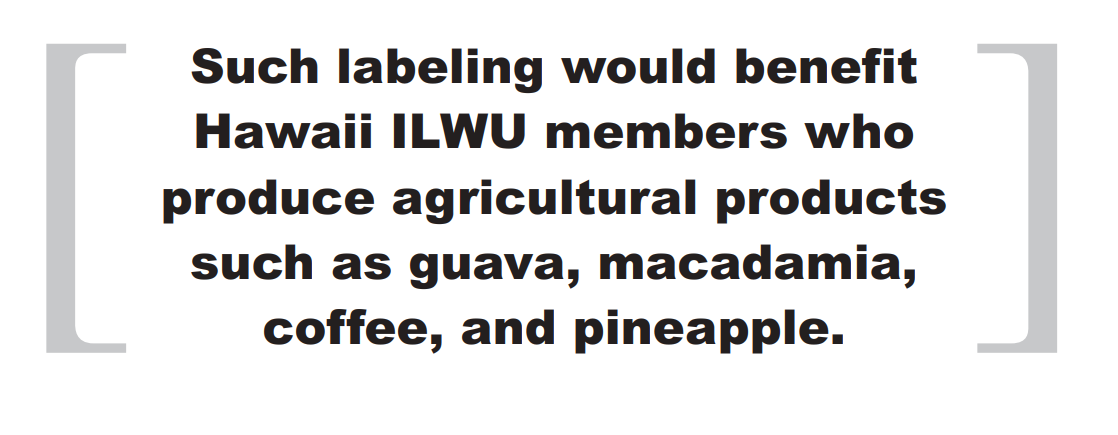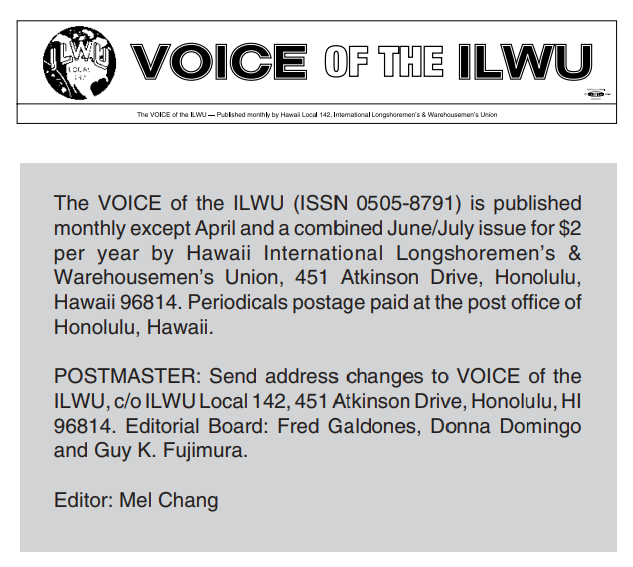Are our food and drugs safe?
In September 2004, drug manufacturer Merck voluntarily withdrew its anti-inflammatory drug Vioxx from the market. A long-term study of the drug found an increased risk of serious heart attacks and strokes. The Food and Drug Administration (FDA) issued a Public Health Advisory to inform patients of this action and to advise them to consult with a physician about alternative medications.
The FDA announces as many as several thousand such recalls every year. See their website at http://www.fda.gov/ opacom/7alerts.html for the major recalls of the last 60 days. The FDA also issues a weekly FDA Enforcement Report which lists all recalls made that week. A quick glance at the December 22, 2004 report showed 50+ recalls for that week.
In December 2003, Hawaii was one of eight Western states warned about the possibility that bovine spongiform encephalopathy (mad cow) infected meat could have reached retail markets in the state. The company that processed the meat announced it was voluntarily recalling 10,410 pounds of raw beef that may be contaminated. A month later, the US Department of Agriculture (USDA) issued new rules aimed at reducing the risk of meat from mad cows from entering the food supply. These rules prohibit the use of “downer” cattle and certain animal parts such as the skull, brain, eyes, and spinal cord from being used to make food for human consumption.
In July 2002, the US Department of Agriculture announced the voluntary recall of 19 million pounds of hamburger after 22 people were sickened after eating E. coli bacteria contaminated meat. This was 11 years after the USDA issued new rules for meatpackers after 700 people were sickened and 4 children dies after eating E. coli contaminated hamburger in 1993.
The Food Safety and Inspection Service (FSIS) of the Department of Agriculture lists their recalls on their website at http:// www.fsis.usda.gov/Fsis_Recalls/ index.asp. As of December 28, 2004, the FSIS listed 11 open and about 35 closed cases for the year 2004.
Working or broken?
The large number of recalls could mean our food safety system is working well and catching these problems before they harm the public. Or the large number of recalls could just as easily suggest that our government should be doing much more to ensure the safety and quality of our food supply. ◆
Country of origin labeling
The 2002 US Farm Bill jobs. which extended the program that helps protect Hawaii sugar also contained a provision that beef, lamb, pork, fish, perishable agricultural commodities and peanuts sold at retail to consumers had to have a country of origin label (COOL).
Fruits, vegetables, and peanuts could carry a “United States country of origin” label only if they were exclusively grown in the United States. Meat and fish products must come from animals born, raised, and slaughtered in the United States or fish caught in waters of, and processed in, the United States.
Such labeling is already required on most packaged food products. The 2002 Farm Bill extended this labeling to meats, seafood, and perishable agricultural commodities.
Consumers like the idea of country of origin labeling. Fresh Trends 2002 found that 86 percent of consumers favor such labeling. A 2003 survey by the Florida Department of Agriculture found that 62 percent would purchase US produce if it had an identifying mark. Consumers, if given the choice, would prefer the safety and quality of the US product. In addition, COOL was supported by over 200 organizations representing consumers, farmers, and ranchers.
Such labeling would benefit Hawaii ILWU members who produce agricultural products such as guava, macadamia, coffee, and pineapple. These products can be labeled and advertised as being a product of the USA, while the same imported products must be properly labeled with their country of origin.
However, the country of origin labeling was strongly opposed by agribusiness, meat packers, and the big grocery chains as costly and unworkable. Instead, the food industry proposed voluntary labeling and, with the backing of the Bush Administration, successfully lobbied Congress to delay implementing the mandatory labeling until September 2006. Presently, only fish and shellfish are subject to this labeling requirement.

The delay of COOL is a step backward for good business practices and consumer rights in the US. Most industrial countries in the world have consumer rights and food safety laws that go far beyond what is required in the US.
Labeling requirements and food standards also protect and promote good business practices which benefits business as much as the consumer. Responsible and reputable businesses are hurt when a few dishonest businesses sell diluted products or make misleading and deceptive claims about their products. A single national standard, instead of 50 different state standards, also makes it easier to sell goods nationwide. ◆

Good news for Hawaii sugar
Look closely at the list of ingredients on a can of Pepsi Cola or any other soft drink. One of the ingredients listed will be “high fructose corn syrup and/or sugar.” This is somewhat misleading as soft drink manufacturers stopped using sugar 20 years ago and use only corn syrup to sweeten their drinks. This had a major impact on the US domestic sugar industry and led to the shutdown of Hawaii sugar plantations and the loss of thousands of ILWU The 2002 US Farm Bill jobs.
The “and/or sugar” labeling was legal, as the soft drink industry had requested and received a special exemption in 1993 from the US Food and Drug Administration (FDA). Soft drink makers argued this would give them the flexibility to use either form of sugar when it was cheaper or in special cases such as the Jewish Passover where bottlers will use sugar because corn syrup is not considered Kosher. They also claimed it was impractical to change the label to deal with these limited situations.
In action taken in November 2004, the FDA withdrew the special exemption and will now require soft drink makers to accurately label the type of sugar used in their products. The ruling may encourage some soft drink makers to use more sugar in their products.
“This is a win for all consumers,” stated Andy Briscoe, president and CEO of the Sugar Association, which represents US sugar producers. “It confirms the importance of accuracy in labeling on consumer products. The law prohibits the listing of an ingredient that is not actually present in the product.” ◆
